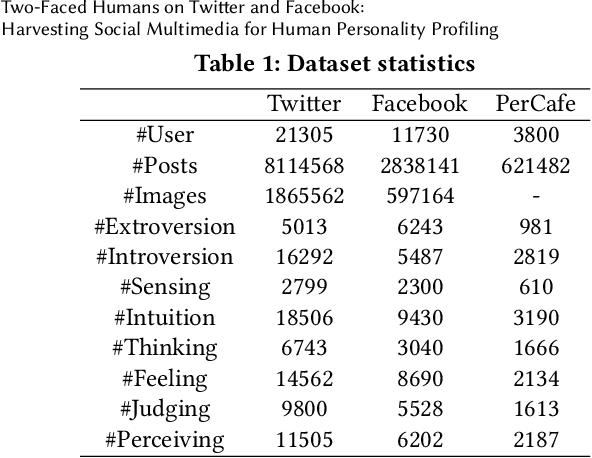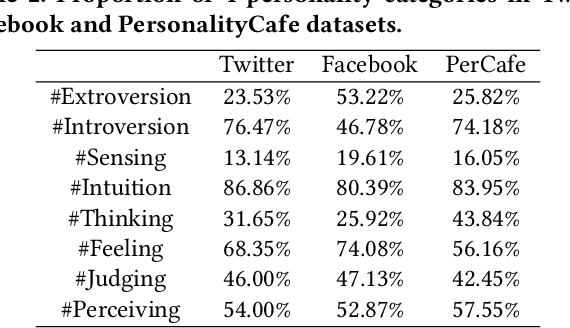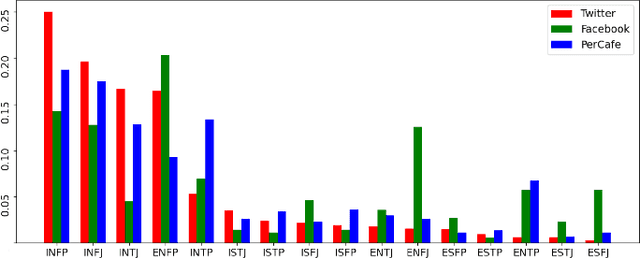Aleksandr Farseev
Against Opacity: Explainable AI and Large Language Models for Effective Digital Advertising
Apr 22, 2025Abstract:The opaqueness of modern digital advertising, exemplified by platforms such as Meta Ads, raises concerns regarding their autonomous control over audience targeting, pricing structures, and ad relevancy assessments. Locked in their leading positions by network effects, ``Metas and Googles of the world'' attract countless advertisers who rely on intuition, with billions of dollars lost on ineffective social media ads. The platforms' algorithms use huge amounts of data unavailable to advertisers, and the algorithms themselves are opaque as well. This lack of transparency hinders the advertisers' ability to make informed decisions and necessitates efforts to promote transparency, standardize industry metrics, and strengthen regulatory frameworks. In this work, we propose novel ways to assist marketers in optimizing their advertising strategies via machine learning techniques designed to analyze and evaluate content, in particular, predict the click-through rates (CTR) of novel advertising content. Another important problem is that large volumes of data available in the competitive landscape, e.g., competitors' ads, impede the ability of marketers to derive meaningful insights. This leads to a pressing need for a novel approach that would allow us to summarize and comprehend complex data. Inspired by the success of ChatGPT in bridging the gap between large language models (LLMs) and a broader non-technical audience, we propose a novel system that facilitates marketers in data interpretation, called SODA, that merges LLMs with explainable AI, enabling better human-AI collaboration with an emphasis on the domain of digital marketing and advertising. By combining LLMs and explainability features, in particular modern text-image models, we aim to improve the synergy between human marketers and AI systems.
Personality-Driven Social Multimedia Content Recommendation
Jul 25, 2022



Abstract:Social media marketing plays a vital role in promoting brand and product values to wide audiences. In order to boost their advertising revenues, global media buying platforms such as Facebook Ads constantly reduce the reach of branded organic posts, pushing brands to spend more on paid media ads. In order to run organic and paid social media marketing efficiently, it is necessary to understand the audience, tailoring the content to fit their interests and online behaviours, which is impossible to do manually at a large scale. At the same time, various personality type categorization schemes such as the Myers-Briggs Personality Type indicator make it possible to reveal the dependencies between personality traits and user content preferences on a wider scale by categorizing audience behaviours in a unified and structured manner. This problem is yet to be studied in depth by the research community, while the level of impact of different personality traits on content recommendation accuracy has not been widely utilised and comprehensively evaluated so far. Specifically, in this work we investigate the impact of human personality traits on the content recommendation model by applying a novel personality-driven multi-view content recommender system called Personality Content Marketing Recommender Engine, or PersiC. Our experimental results and real-world case study demonstrate not just PersiC's ability to perform efficient human personality-driven multi-view content recommendation, but also allow for actionable digital ad strategy recommendations, which when deployed are able to improve digital advertising efficiency by over 420% as compared to the original human-guided approach.
Two-Faced Humans on Twitter and Facebook: Harvesting Social Multimedia for Human Personality Profiling
Jun 20, 2021



Abstract:Human personality traits are the key drivers behind our decision-making, influencing our life path on a daily basis. Inference of personality traits, such as Myers-Briggs Personality Type, as well as an understanding of dependencies between personality traits and users' behavior on various social media platforms is of crucial importance to modern research and industry applications. The emergence of diverse and cross-purpose social media avenues makes it possible to perform user personality profiling automatically and efficiently based on data represented across multiple data modalities. However, the research efforts on personality profiling from multi-source multi-modal social media data are relatively sparse, and the level of impact of different social network data on machine learning performance has yet to be comprehensively evaluated. Furthermore, there is not such dataset in the research community to benchmark. This study is one of the first attempts towards bridging such an important research gap. Specifically, in this work, we infer the Myers-Briggs Personality Type indicators, by applying a novel multi-view fusion framework, called "PERS" and comparing the performance results not just across data modalities but also with respect to different social network data sources. Our experimental results demonstrate the PERS's ability to learn from multi-view data for personality profiling by efficiently leveraging on the significantly different data arriving from diverse social multimedia sources. We have also found that the selection of a machine learning approach is of crucial importance when choosing social network data sources and that people tend to reveal multiple facets of their personality in different social media avenues. Our released social multimedia dataset facilitates future research on this direction.
SoMin.ai: Personality-Driven Content Generation Platform
Nov 30, 2020



Abstract:In this technical demonstration, we showcase the World's first personality-driven marketing content generation platform, called SoMin.ai. The platform combines deep multi-view personality profiling framework and style generative adversarial networks facilitating the automatic creation of content that appeals to different human personality types. The platform can be used for the enhancement of the social networking user experience as well as for content marketing routines. Guided by the MBTI personality type, automatically derived from a user social network content, SoMin.ai generates new social media content based on the preferences of other users with a similar personality type aiming at enhancing the user experience on social networking venues as well diversifying the efforts of marketers when crafting new content for digital marketing campaigns. The real-time user feedback to the platform via the platform's GUI fine-tunes the content generation model and the evaluation results demonstrate the promising performance of the proposed multi-view personality profiling framework when being applied in the content generation scenario. By leveraging content generation at a large scale, marketers will be able to execute more effective digital marketing campaigns at a lower cost.
I Know Where You Are Coming From: On the Impact of Social Media Sources on AI Model Performance
Feb 05, 2020

Abstract:Nowadays, social networks play a crucial role in human everyday life and no longer purely associated with spare time spending. In fact, instant communication with friends and colleagues has become an essential component of our daily interaction giving a raise of multiple new social network types emergence. By participating in such networks, individuals generate a multitude of data points that describe their activities from different perspectives and, for example, can be further used for applications such as personalized recommendation or user profiling. However, the impact of the different social media networks on machine learning model performance has not been studied comprehensively yet. Particularly, the literature on modeling multi-modal data from multiple social networks is relatively sparse, which had inspired us to take a deeper dive into the topic in this preliminary study. Specifically, in this work, we will study the performance of different machine learning models when being learned on multi-modal data from different social networks. Our initial experimental results reveal that social network choice impacts the performance and the proper selection of data source is crucial.
 Add to Chrome
Add to Chrome Add to Firefox
Add to Firefox Add to Edge
Add to Edge